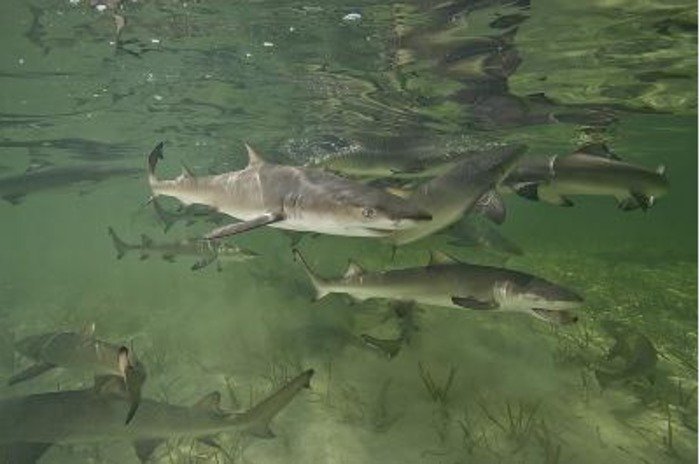Research conducted in Bimini in The Bahamas spanning almost two decades shows that female lemon sharks that were born there returned 15 years later to give birth to their own young, confirming this behavior for the first time in sharks. Credit: Matt Potenski
STONY BROOK, N.Y., Dec. 6 (UPI) -- Female sharks return to their birthplace to give birth, like salmon and sea turtles, U.S. researches report at the end of an almost 20-year study.
Begun in 1995, the study involved the capture, tagging, release and tracking of more than 2,000 baby lemon sharks. The ongoing project yielded the first confirmation of the "homing" behavior in sharks, the researchers reported.
The study was conducted in Bimini in the Bahamas.
"We found that newborn sharks captured in the mid-1990s left the safety of the islands when they were between 5 and 8 years old," researcher Kevin Feldheim of Chicago's Field Museum said.
"Yet, despite leaving and visiting many other islands in their travels, these sharks 'remember' where they were born after a decade of roving, and are able to find the island again when they are pregnant and ready to give birth," he said.
Scientists have long speculated female sharks have the ability to home back to their birthplace to give birth, but the difficulty of keeping track of sharks from birth to maturity has made confirmation of the behavior a struggle, the researchers said.
Many hundreds of student volunteers came to the Bahamas to help with the 19-year ongoing research effort to prove the speculation was true, a release from the Institute for Ocean Conservation Science at Stony Brook University in New York said.
Evidence that sharks utilize the same nursery areas across generations underscores the critical importance of preserving local nursery habitats and can provide strong input in designating inshore marine reserves that would protect sharks of future generations, the researchers said.















